The immune system is an important part of the survival of any animal, including humans. Our immune systems help defend our bodies against infection and fight off harmful substances when we get sick.
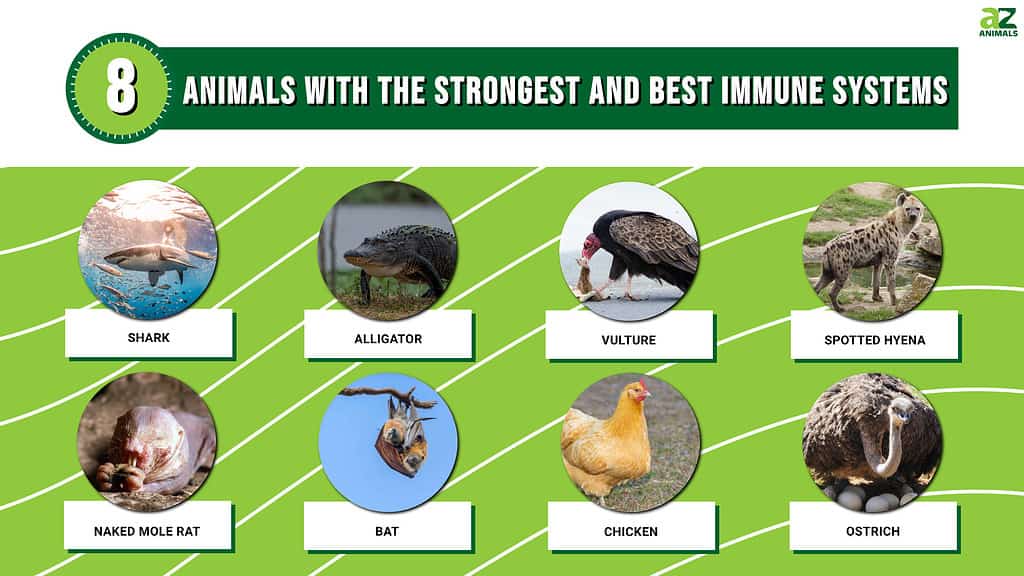
The human immune system is incredibly powerful, but other animals’ immune systems can do things that are even more impressive. Studying animals’ immune systems can help humans develop medicine and other tools to fight diseases. These eight creatures in the animal kingdom have some of the best immune systems around.
1. Sharks

Sharks have an incredible ability to heal wounds and neutralize invading viruses.
©Vladimir Wrangel/Shutterstock.com
To kick off this list we will start with sharks — a cartilaginous fish. There are numerous species of shark and these creatures’ powerful immune system has helped them survive for millions of years.
According to the Washington Post, shark antibodies are much better at neutralizing invading viruses than humans. Aaron LeBeau, a professor of pathology at the University of Wisconsin-Madison, explained that shark antibodies can “fit into areas of proteins that human antibodies can’t get to.” Because shark antibodies have to survive in shark blood, which is high in salt, they are also remarkably tough.
2. Alligators

American alligators have a powerful defense against infections and likely many strains of harmful bacteria.
©slowmotiongli/iStock via Getty Images
Alligators are another cold-blooded creature with an impressive immune system. Like sharks, crocodilian creatures have been on this earth for millions of years. Over time, alligators evolved to develop a powerful defense against infections, writes New Scientist.
“They inflict wounds on each other from which they frequently recover without complications from infection despite the fact that the environments in which they live are less than sterile,” Barney Bishop of George Mason University in Fairfax, Virginia, told the outlet.
3. Vultures
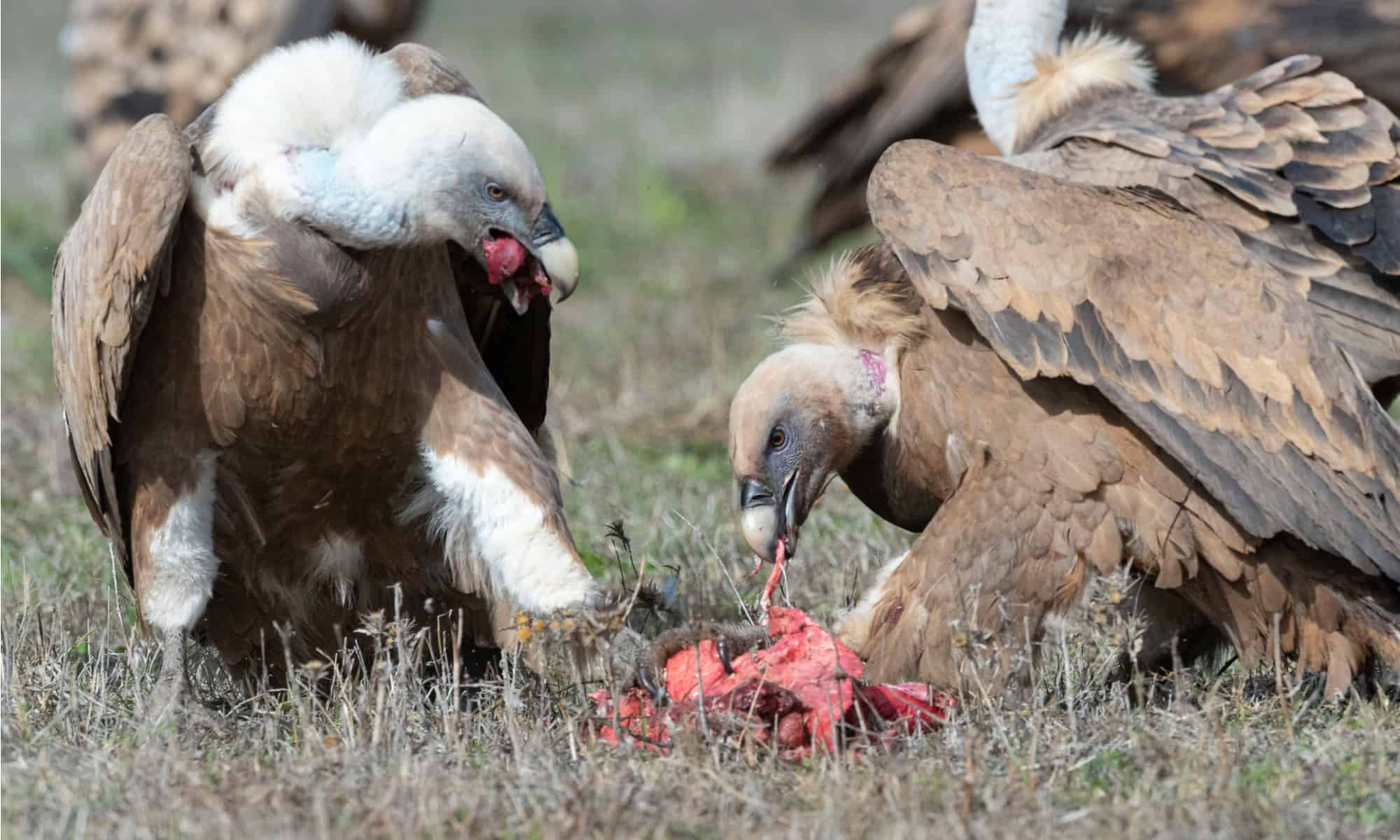
Griffon vultures are scavengers capable of eating carrion without getting sick with diseases such as rabies and distemper.
©Jesus Cobaleda/Shutterstock.com
Though vultures get a bad reputation, they’re actually an essential part of our ecosystem. These large raptors help to clear away animal carcasses from roadsides and other areas. A strong immune system is essential for creatures that regularly feed on dead animals. So, how can vultures eat rotten meat without getting sick?
The answer seems to lie within a vulture’s incredibly powerful stomach acids. According to the National Audobon Society, the gut of a vulture digests flesh so thoroughly that even the animal’s DNA is destroyed. Their digestive system also destroys some toxic microfibers and filters out others by concentrating them in the intestines.
Incredibly, vultures can even use otherwise deadly bacteria from their prey to help them digest the food they eat. These creatures have been found to have bacteria such as flesh-eating Fusobacteria and highly toxic clostridia on their skin and faces or in their intestines, without showing any sign of being ill.
Vultures don’t just help the ecosystem by cleaning up the roads, they also help reduce the spread of diseases, according to the Missouri Department of Conservation.
Groups of vultures quickly clear away dead animals, and if that creature has rabies, distemper, or other diseases, the vultures won’t get sick. However, if other mammals like opossums, raccoons, or dogs ate the carcass, they could get sick and spread the disease to more animals.
4. Spotted Hyenas

Hyenas eat the entire animal, including bones, and often feast on dead carcasses.
©Alexandree/Shutterstock.com
In the same vein as vultures, spotted hyenas are animals that often feed on carrion, yet they rarely die from disease. According to a study from the National Library of Medicine, hyenas have survived anthrax rabies, and other viral diseases that would prove deadly for most mammals.
Hyenas also appear to recover quickly from broken bones and other injuries sustained in the wild, writes Smithsonian Magazine. For example, Andrew Flies, a research fellow in immunology at the University of Tasmania and the University of South Australia, described a hyena his team observed with a hunter’s snare caught around its neck.
5. Naked Mole Rats
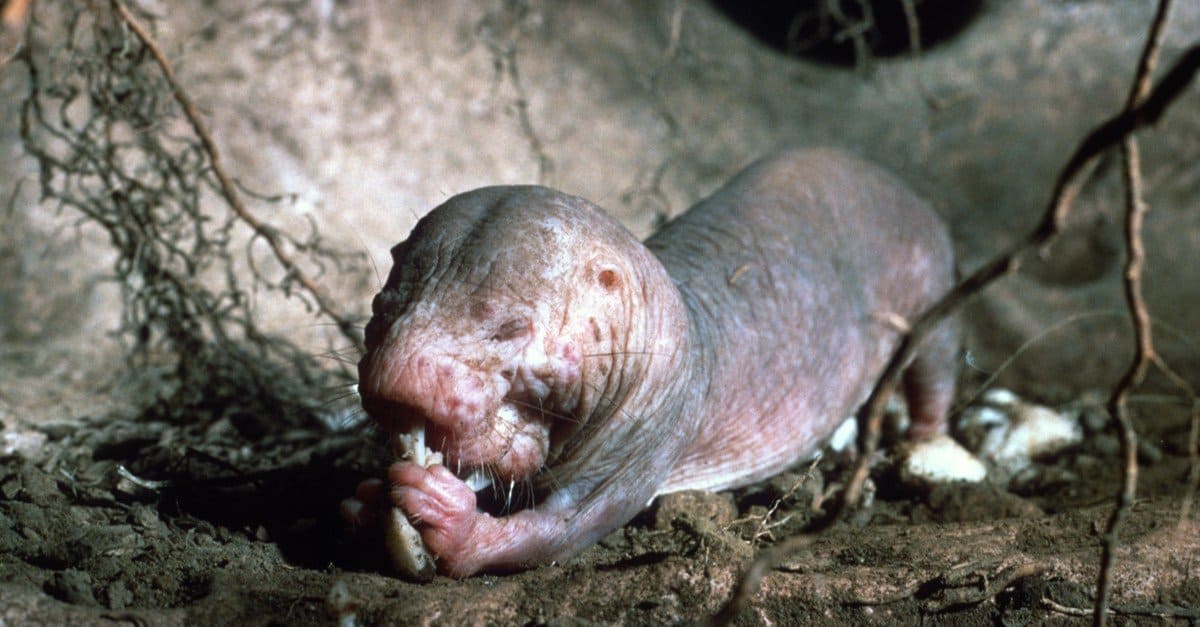
Naked mole rats live incredibly long lives compared to other rodents and almost never get diseases such as cancer.
©Neil Bromhall/Shutterstock.com
The naked mole rat contains an unusual and unique immune system. These creatures live an incredibly long time when compared to other rodents. Naked mole rats have a lifespan of up to 30 years under human care.
Other pet rodents, such as domestic mice, live 1-3 years on average. Domestic rats live around 2-4 years, though an instance of a pet rat living up to 7 years has been reported.
One factor that aids in naked mole rats’ long lifespan is that these creatures are almost completely immune to cancer. New research from the University of Cambridge suggests that genes known to cause cancer in cells of other rodents can also lead naked mole-rat cells to become cancerous.
However, this study points to the idea that, due to the naked mole rat’s unique microenvironment, the initial stages of cancer never develop into tumors or become harmful to the naked mole rat.
6. Bats
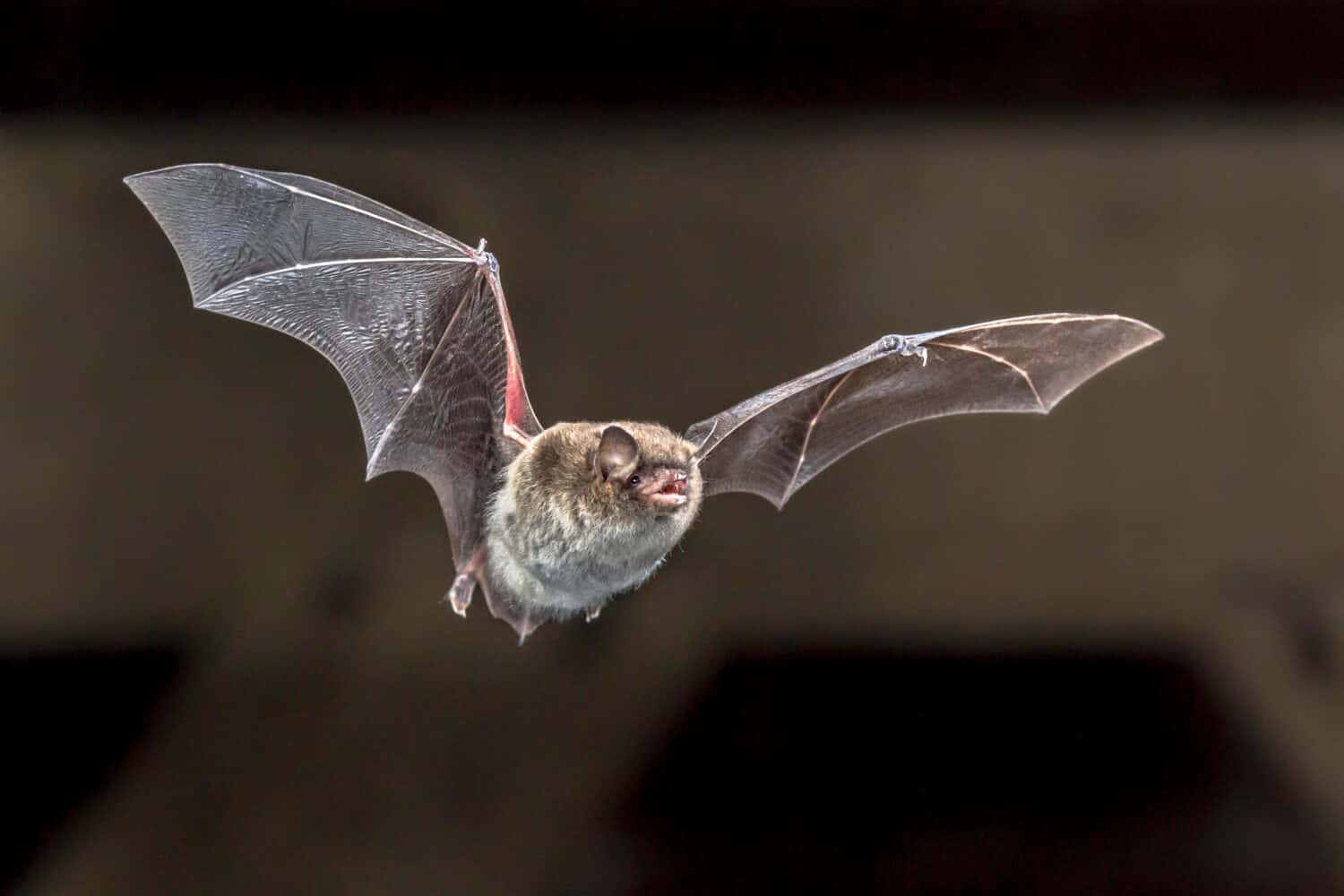
A bat’s body temperature rises when it flies, which helps these creatures fight off viral infections.
©Rudmer Zwerver/Shutterstock.com
Bats have an incredible ability to outsmart viruses. According to Science ABC, research shows that bats harbor a number of diseases in their bodies without showing any symptoms. A human infected by the same virus living within a bat may begin to show symptoms, while the bat remains perfectly healthy.
So what makes bat immune systems so impressive? Bat cells have evolved highly effective antiviral immune responses to a multitude of viruses. This suggests that bats can better suppress viral damage through their innate immune system.
You’ve probably heard that higher body temperature makes it harder for some viruses and bacteria to survive. This is why humans often get fevers when they are sick. In humans, fevers are the body’s natural way of trying to kill off a virus or bacteria.
Bats have a more effective method. When bats fly their body temperature rises to >38°C (100.4°F) in response to the intense activity. This boosts the creature’s metabolism and provides high energy levels for sustained flight. It is also likely one of the ways that bats effectively fight off viral infections, without actually getting sick.
7. Chickens
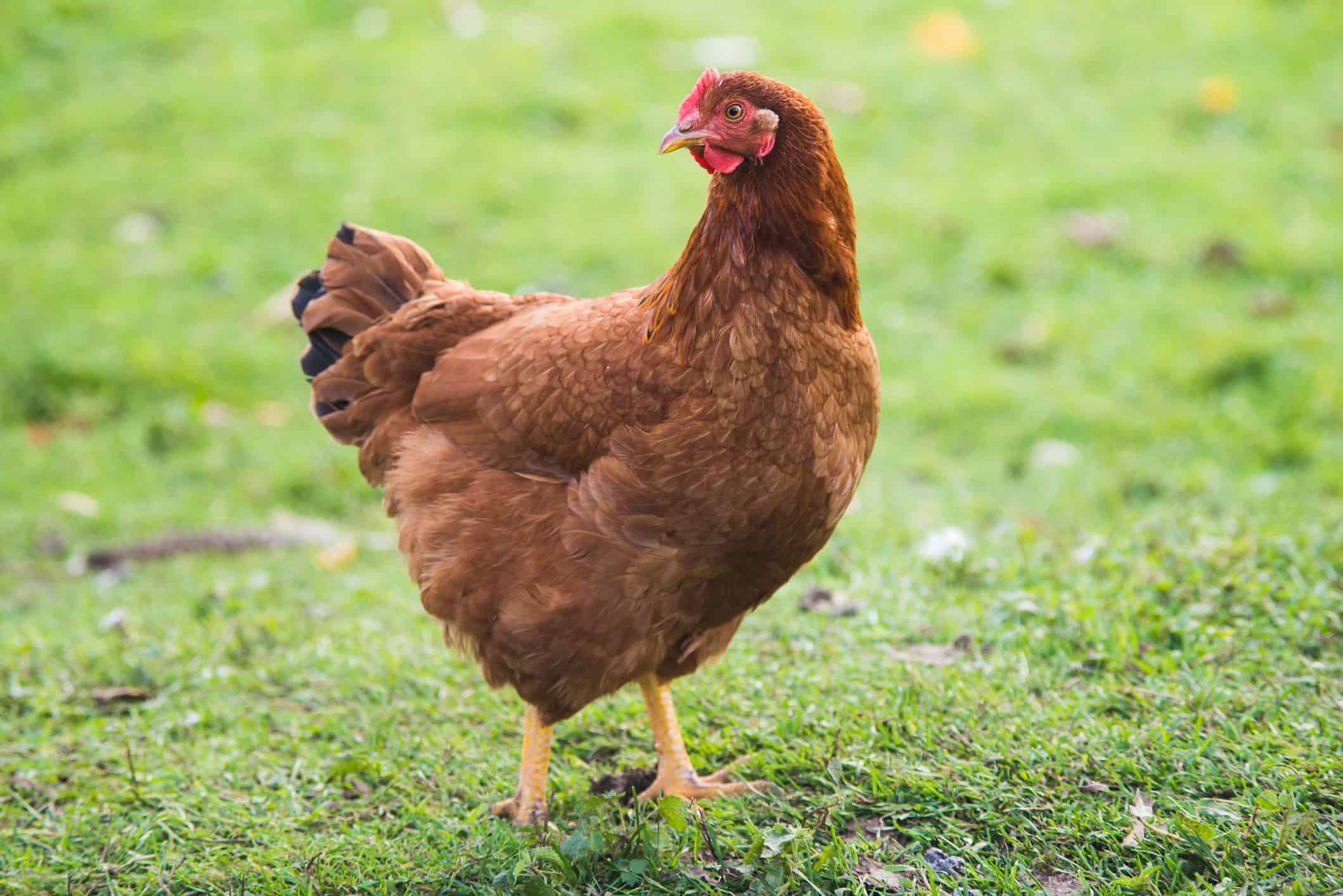
The high body temperature of chickens means that diseases such as anthrax cannot survive in them.
©Nadanka/iStock via Getty Images
Bats aren’t the only animals whose high body temperature helps keep diseases at bay. Unlike humans, who have an average body temperature of around 98.6°F (37°C), the normal body temperature of an adult chicken lies between 105°F and 107°F (40.6° and 41.7°C).
This high body temperature gives chickens a natural immunity to the bacterium Bacillus anthracis. In humans, cattle, and deer, this bacterium causes the potentially deadly disease known as anthrax.
8. Ostriches
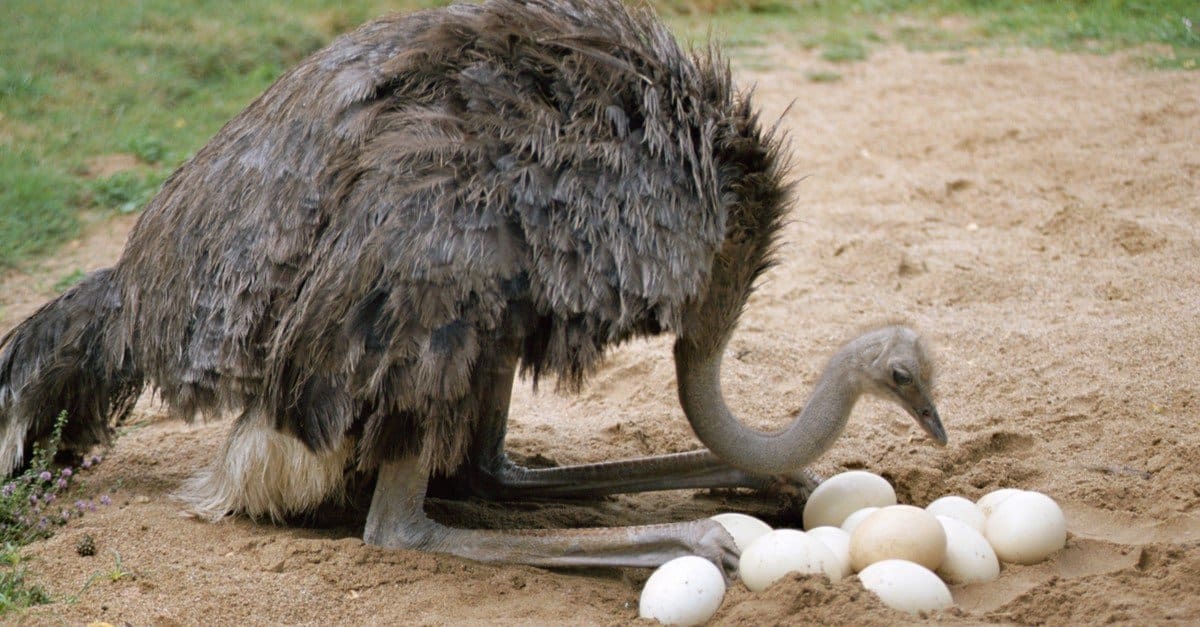
Ostriches pass antibodies to their young through the yolk in their eggs. Ostrich eggs weigh around three pounds on average.
©fullempty/Shutterstock.com
Research suggests that ostriches have the most powerful immune system in the world. This epiphany began to form thanks to Yasuhiro Tsukamoto, a dean of veterinary science at Japan’s Kyoto Prefecture University.
According to a story from the National Audobon Society, Tsukamoto kept a flock of 500 captive-bred ostriches over several large ranches in Japan. His original goal was to study ostriches fed surplus soybeans, which they would then poop into fertilizer for local farms. However, Tsukamoto’s research shifted when he made an incredible discovery in 1990.
Tsukamoto’s birds were surprisingly healthy and disease-free compared to other captive species. The secret to these creatures’ incredible immune systems seemed to lie within their eggs. In mammals, pregnant mothers pass antibodies to their young through their placenta and breast milk.
Birds pass antibodies through the yolk in their eggs. Tsukamoto began work on the idea of customizing the antibodies in an unfertilized ostrich egg and extracting them to make various medicines for humans. Incredibly, Tsukamoto and his team announced in 2019 that they successfully distilled antibodies that could neutralize all four strains of the dengue fever virus in the lab.
Though this work has not been published or peer-reviewed yet, the idea of using ostrich antibodies is certainly intriguing. Research has even suggested that the antibodies from ostrich eggs could potentially help treat other diseases such as cholera and remedy hair loss and acne.
Summary of the 8 Animals With the Strongest and Best Immune System
| Number | Animal | Immunity |
|---|---|---|
| 1 | Shark | Powerful antibodies; Effective wound-healing abilities; Suspected resistance to some cancers |
| 2 | Alligator | Defense against wound infection and several strains of bacteria |
| 3 | Vulture | Able to eat dead and rotting flesh without contracting diseases such as rabies, distemper, etc. |
| 4 | Spotted hyena | Able to survive diseases such as rabies and anthrax; Recover quickly from injuries without succumbing to infection |
| 5 | Naked mole rat | Resistant to cancer |
| 6 | Bat | Effective immune response to a number of viruses |
| 7 | Chicken | High body temperature gives them natural immunity to diseases such as anthrax |
| 8 | Ostrich | Powerful antibodies passed to their young through the yolk in their eggs |
The photo featured at the top of this post is © Henk Bogaard/Shutterstock.com
Thank you for reading! Have some feedback for us? Contact the AZ Animals editorial team.







